16 Vile Coffee Shop Facts That Will Make You Stick to Home Brewing
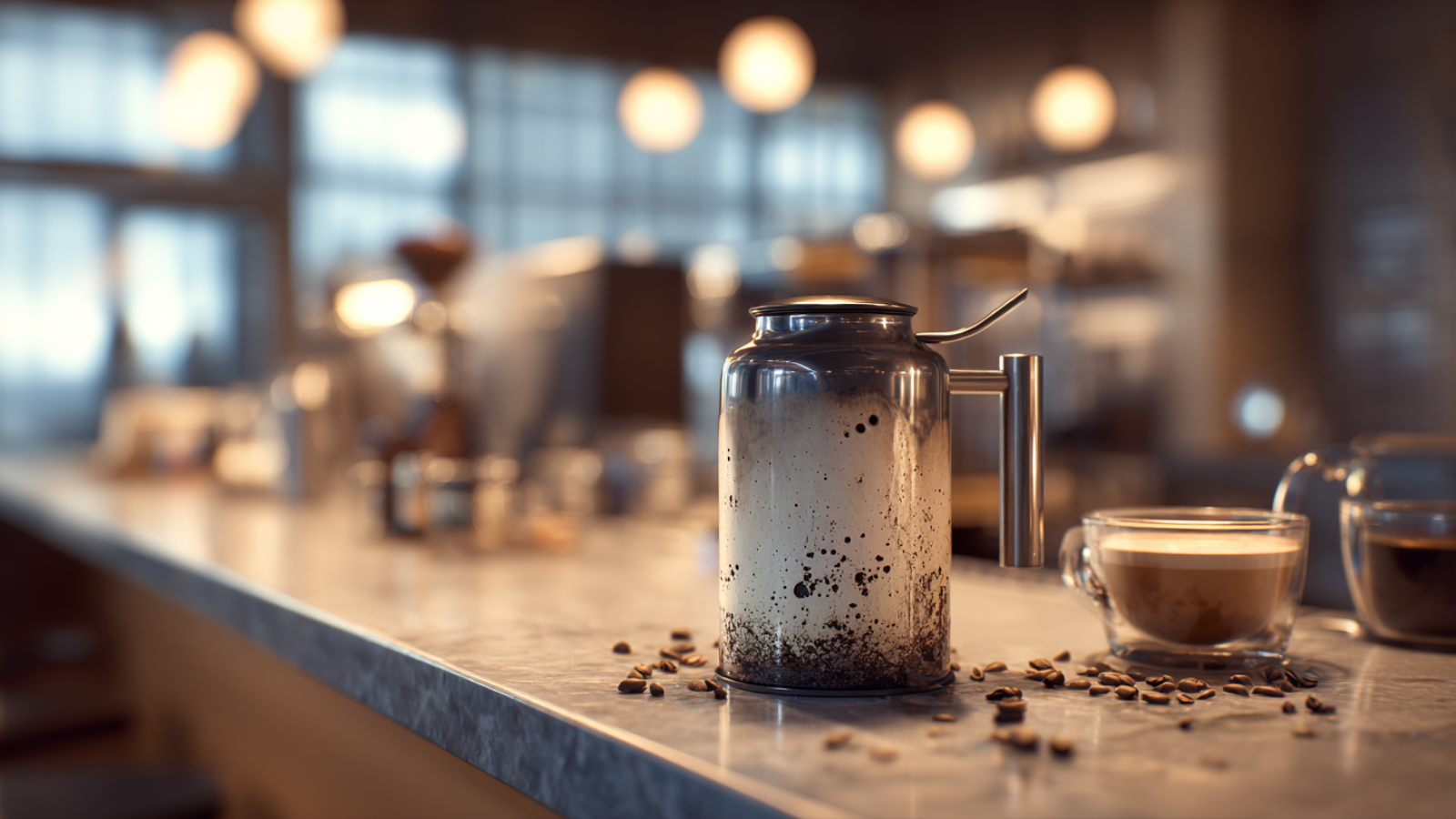
Coffee Shops Could Be Dirtier Than Your Toilet. Here’s the Proof
We all love the ambiance of a coffee shop; but the reality behind the counter might make you rethink your daily latte run.
Here are 16 disturbingly germy truths that might just drive you back to brewing at home in your sanitized, stylish Beast Tumbler…
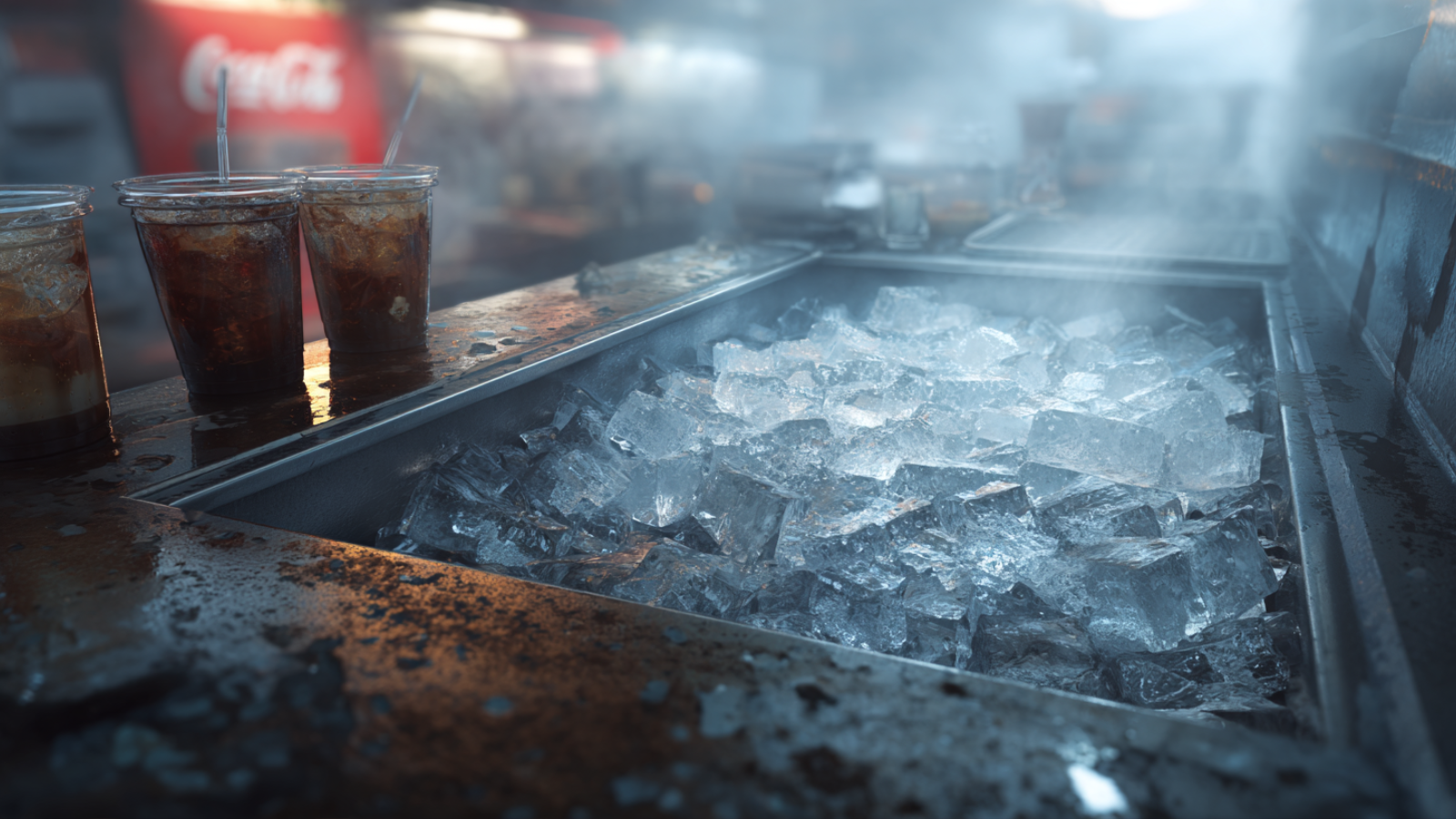
1. Ice Machines Are Shockingly Contaminated
In one study, 6.7% of ice samples and 21.9% of ice chest samples from food service settings tested positive for E. coli despite clean water sources. Others report ice machines can harbor E. coli, Salmonella, Listeria, coliforms, and mold—described by experts as “about as germ-ridden as toilet water”.
2. Employees Often Skip Proper Handwashing
Nearly half (48%) of U.S. adults admit they forget or choose not to wash their hands at key times—like after visiting a coffee shop or restaurant—even though proper handwashing can prevent around 80% of infectious diseases.
3. Countertops Can Actually Be Dirtier Than Your Sponge
Surface-cleaning cloths themselves are super germy: 89.2% harbored coliforms, 54.1% contained E. coli, and a staggering 45-fold increase in bacteria is found on tables after cleaning with those cloths.
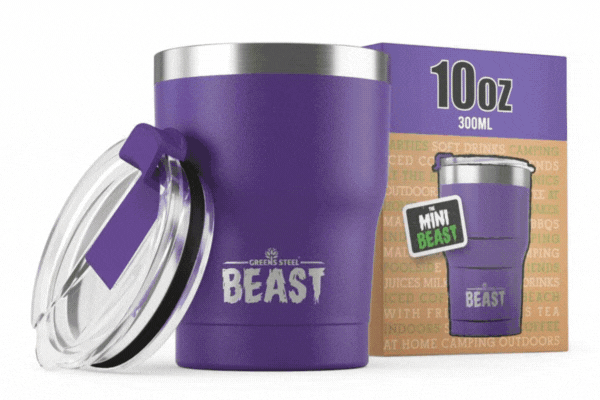
10 oz Mini Beast Tumbler
Just like a bigger Beast - just mini
Available in 12 color options
SHOP NOW4. Milk Frothing Wands Often Go Uncleaned
Residual dried milk on steam wands becomes a perfect playground for bacterial growth, particularly when staff rush between drinks without wiping them between uses.
5. Condiment Stations = Germ Hotspots
Sugar shakers, stir sticks, syrup pumps, and condiment containers are touched by hundreds daily; think of all those fingers, sneezes, and coughs sharing the same lid.
6. Mold May Be Lurking Inside Espresso Machines
Espresso machines’ drip trays and steam chambers are often overlooked during cleaning and can become moldy over time.
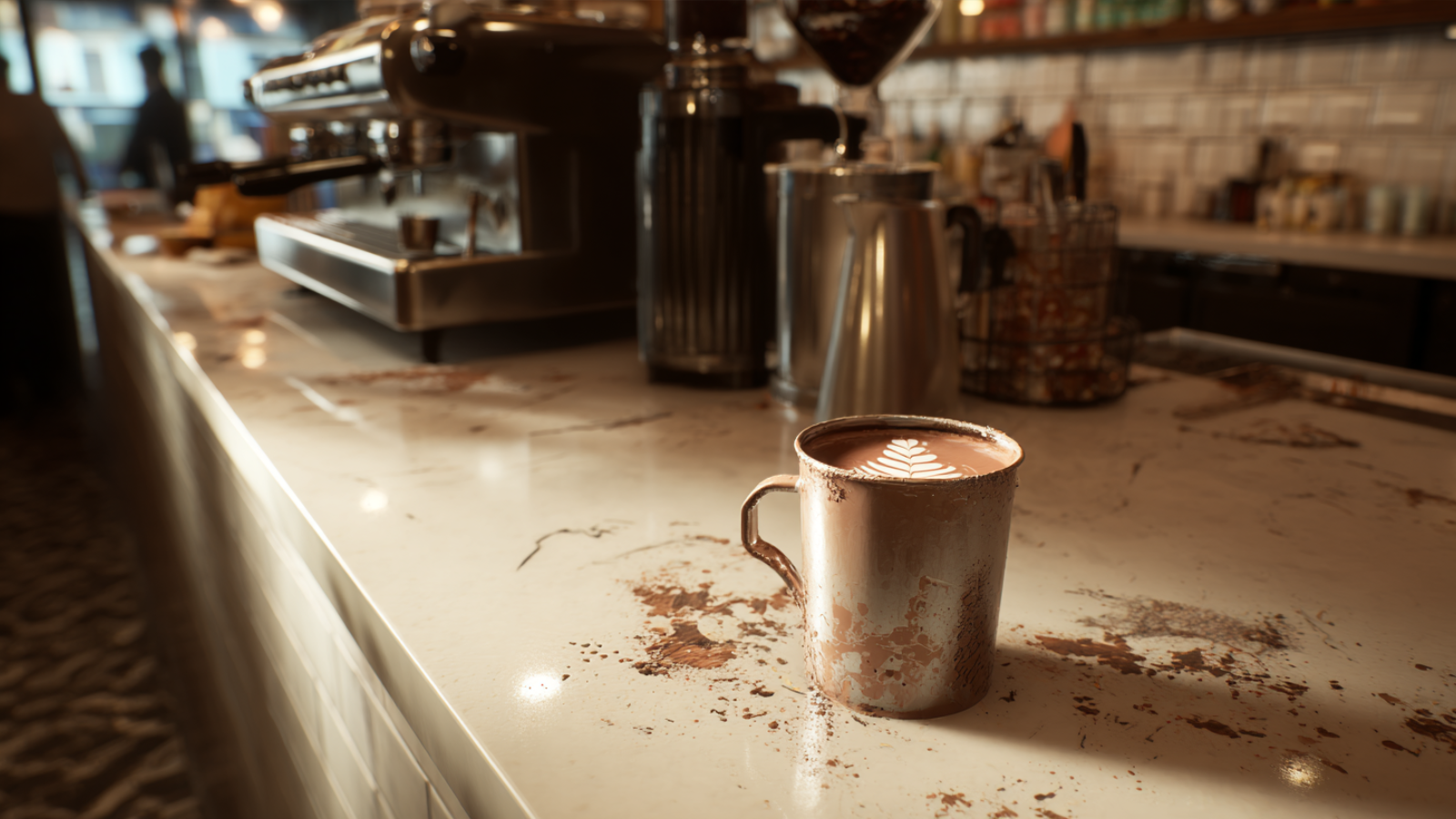
7. Plastic Lids Sit Out in the Open, Uncovered
Single-use plastic lids are commonly stored in bins exposed to sneezes, dust, and airborne germs before being placed on your drink.
8. Baked Goods Get Over-Reheated
Croissants and pastries can sit under warmers and get reheated multiple times. They may look fresh, but could be stale and unappetizing underneath.
9. Whipped Cream Nozzles Can Spoil
If not refrigerated or cleaned properly, whipped cream canisters can breed bacteria—spoilage hidden beneath fluffy sweetness.

Greens Steel Reusable Coffee Cup
Stainless Steel Insulated Coffee Mug with Lid and Built-In Handle
★★★★★ 800+ Amazon Reviews
10. Overflowing Trash Near Prep Areas Attracts Pests
In busy cafés, trash bins often overflow near prep zones, inviting roaches or rodents just steps away from your mocha.
11. Dishwashers Get Short-Cycled in the Rush
To keep pace with demand, staff may shorten dishwasher cycles, meaning cups and utensils don’t always get fully sanitized, yet another germ shortcut.
12. Gloves Don’t Guarantee Hygiene
Baristas wearing gloves look clean, but if they don’t change them between tasks, they're just moving germs around. Gloves alone aren’t a silver bullet for hygiene.
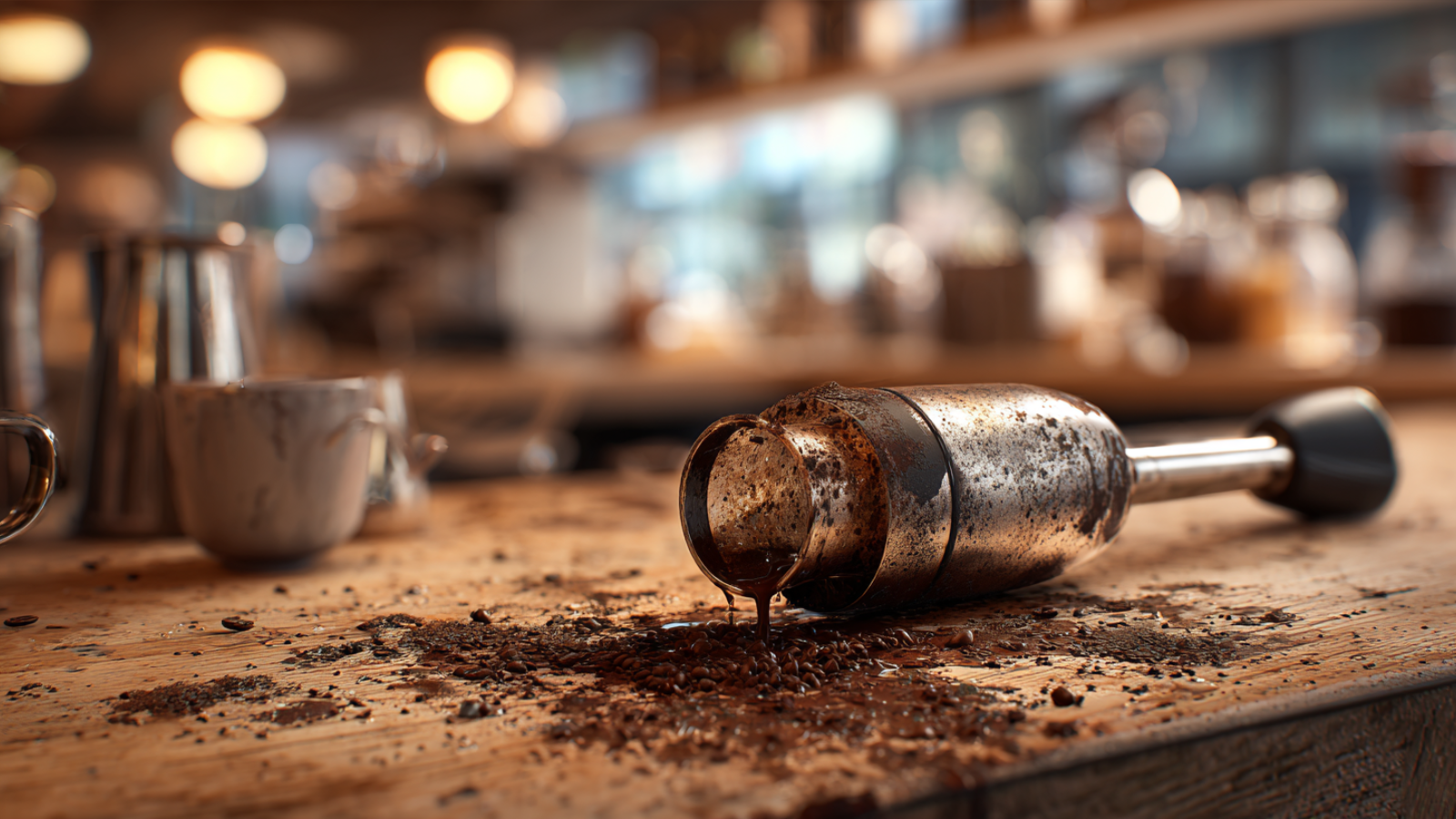
13. Tables, Chairs & Menus Rarely Sanitized
High-touch surfaces like chairs, tables, and menus are seldom cleaned between customers. Bacteria can linger invisibly on all of them—even on laminated menus, which studies show may harbor up to 185,000 bacteria per square centimeter. And more often than not, the cloth they use to clean is far from sanitary.
14. Tap Water Used for Brews
Coffee shops often rely on local tap water, which may contain chlorine, high mineral content, or off-flavors that affect both taste and digestion.
15. Reusable Straws and Stirrers Hide Germs
Eco-friendly single-use stir sticks and reusable straws are germy if not properly washed, which can be especially perilous in busy shops with lax cleaning routines.
16. Even Menus Can Be Contaminated with E. coli
One study found 8% of menus and 4% of ketchup bottles tested positive for E. coli; this means the thing you’re touching to order before you eat might be dirtier than the floor.
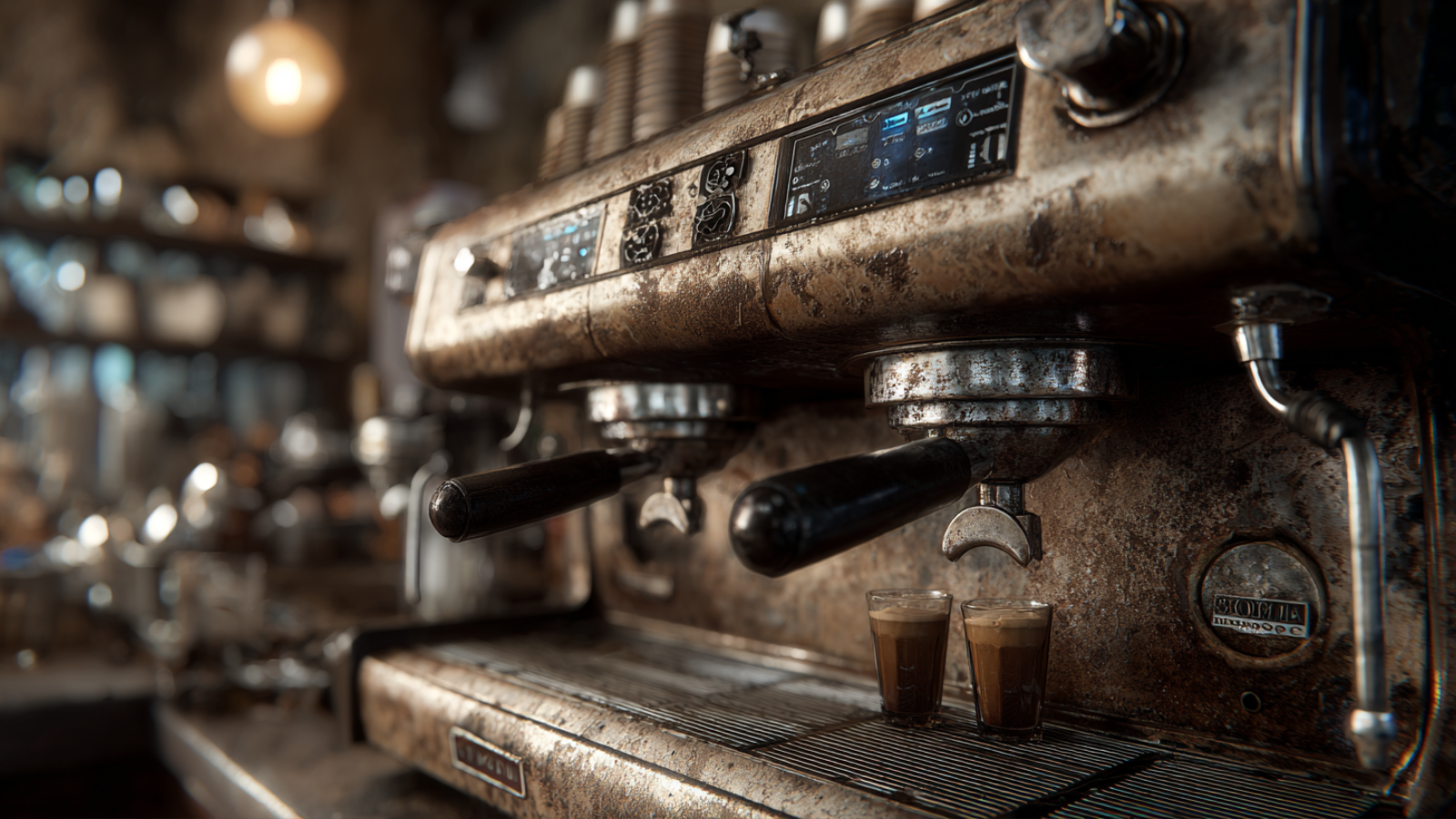
Adios, Baristas
Next time you're about to treat yourself to a café latte, consider what might be lurking behind that foamy top.
Stainless steel is trusted in hospitals and commercial kitchens for a reason: it doesn’t support bacteria or mold growth. For guaranteed cleanliness, flavor, and peace of mind, ditch the germs and brew at home.
Your Greens Steel Beast Tumbler keeps your coffee piping hot or icy cold, hygienic, and totally yours.
Thanks for stopping by, until next time.
Jenn, Greens Steel




